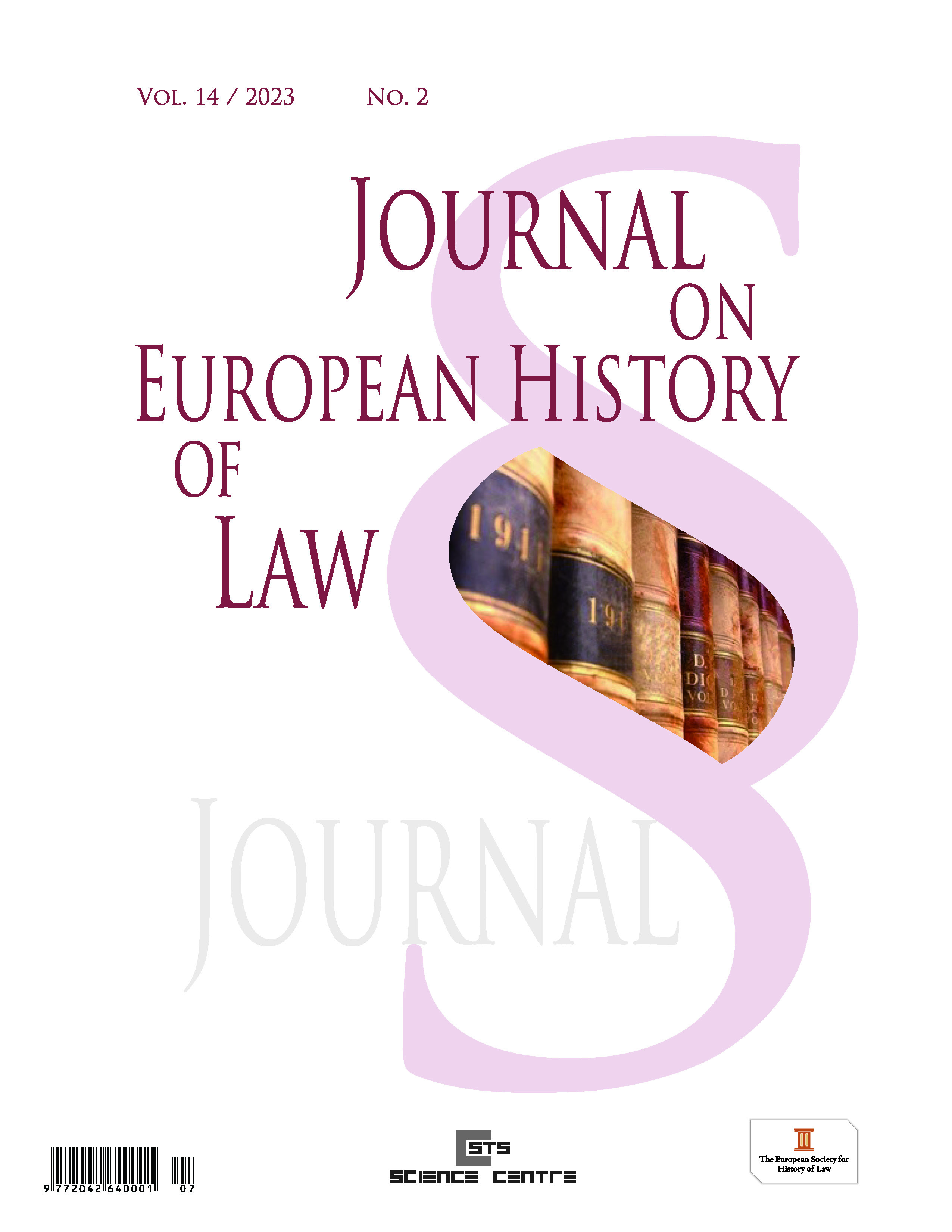The Capability to sue or be a Defendant in the Context of Matrimony with filii familias: An Analysis of D. 15.1.38.1 and D. 24.3.22.3
The Capability to sue or be a Defendant in the Context of Matrimony with filii familias: An Analysis of D. 15.1.38.1 and D. 24.3.22.3
Author(s): Michael BinderSubject(s): History, Law, Constitution, Jurisprudence, Roman law
Published by: Evropská společnost pro právní dějiny, z.s.
Keywords: Roman law; filii familias; dowry; actio rei uxoriae; dolo facit, qui petit quod redditurus est;
Summary/Abstract: In Roman law, it was not uncommon for a filius or a filia familias to get married. The capability of a filius or a filia familias to sue or be a defendant was restricted. During an intact marriage, such a restriction was often insignificant. However, in the case of a divorce, the recipient of the dowry (dos) was sometimes questionable. To settle conflict about the dos, it was important to know who could claim part or all of the dos and who was obligated to return part or all of it. Such a question was raised in D. 15.1.38.1 and in D. 24.3.22.3 where a filius/filia familias first married and later divorced. In this article, D. 15.1.38.1 and D. 24.3.22.3 are exegetically analysed.
Journal: Journal on European History of Law
- Issue Year: 14/2023
- Issue No: 2
- Page Range: 208-213
- Page Count: 6
- Language: English

